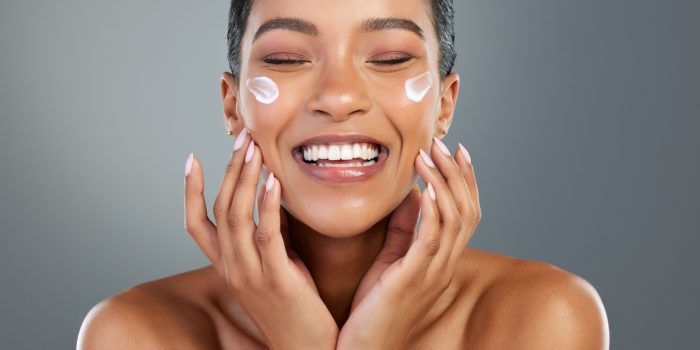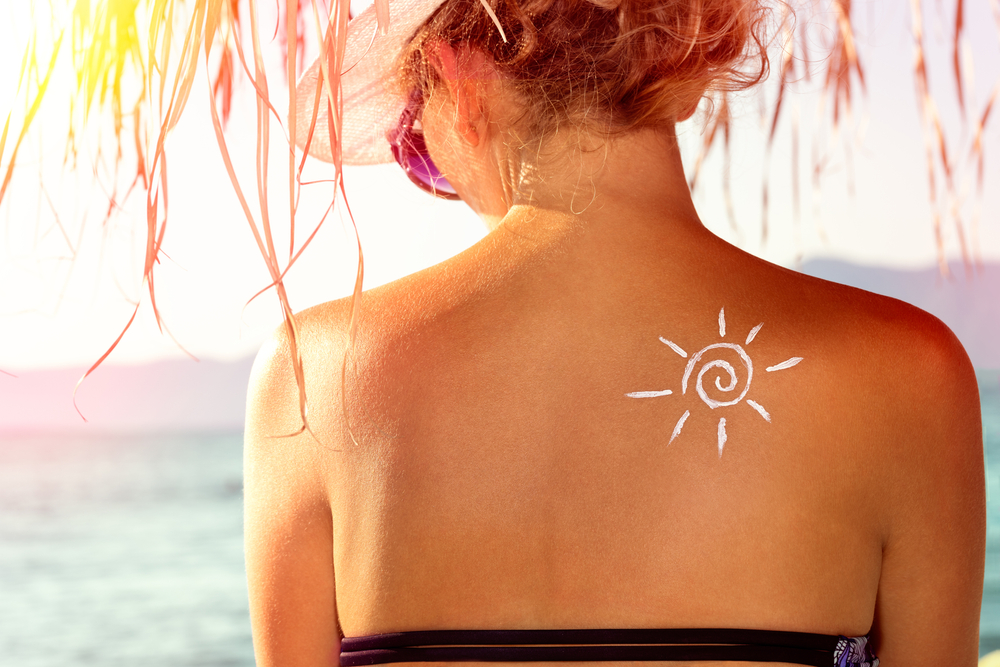
The Human Cell Atlas Project and a new skin research discovery
October 28th, 2024The Human Cell Atlas Project is the most ambitious research program in biology to date. It is an international project centred at the Wellcome Sanger Institute in Cambridge, UK. Last week, BBC headline news revealed that a new skin research discovery associated with the project could help slow down the signs of ageing.
Experts have proven that they can create skin from stem cells. With that knowledge, they believe it is possible to eventually manipulate stem cells to help combat ageing skin
There are 37.2 trillion cells in the human body. Cells are the building blocks of the body and experts are still trying to find out more about them. In an in-depth study, researchers have revealed how skin cells develop in the foetus during the early development stages of life. They have obtained this information by using the very latest single cell and spatial genomics combined with powerful computing and AI.
Stem cells pass instructions to form various parts of the body
During pregnancy when an egg is fertilised human cells are all the same. Three weeks later, specific genes called stem cells ‘switch on’ in the fertilised egg. Stem cells pass instructions on how to clump and form various parts of the human body including the largest organ – the skin.
Making it possible to manipulate ageing skin
Researchers now know which genes are switched on, at what time and in which location. They have the expertise to grow skin and have already grown patches of skin with sprouting hair follicles. Now all they need to do is perfect the art and make it possible to manipulate ageing skin.
One of the researchers, Professor Mulifah Haniffa explained that because they finally understand how cells change from their initial development to ageing in adulthood they can examine how to rejuvenate organs including making the skin look younger.
Find out more information about the findings here.
The Human Cell Atlas Project
The Human Cell Atlas Project is in its 8th year of development. The researcher’s goal is to create a detailed 3- dimensional map of all human cells. It will be a health reference map much like ‘Google Maps’. The maps will demonstrate vital information that will help experts understand human health in intricate detail and help to diagnose, monitor and treat diseases more efficiently.
Professor Sarah Teichmann of Cambridge University is one of the scientists who founded and leads the Human Cell Atlas Consortium. She told the BBC, “It is incredibly exciting because it is giving us new insights into physiology, anatomy, and a new understanding of humans.”
Professor Teichmann said, “It will lead to a rewriting of the textbooks in terms of ourselves and our tissues and organs and how they function.” She concluded that eventually, they will have a more complete picture of how humans are built.
Find out more information about the Human Cell Atlas Project manifesto here.
How to reduce the risk of premature ageing skin
A decline in collagen and elastin in the skin is the root cause of the appearance of ageing skin. There are many reasons why your skin might be ageing prematurely such as genetics, sun exposure, medical conditions, medication, alcohol consumption, smoking, recreational drugs, lack of sleep, a bad diet, dehydration, hormones or weight loss.
Here are our top tips on how to reduce the risk of premature ageing skin
Eat a nutritional diet
Eat a nutritional diet full of protein, vitamins and minerals. Include foods high in antioxidants such as blueberries, raspberries, dark chocolate or beans. Incorporate a selection of plant stem cell-based foods such as broccoli, cauliflower, nuts and seeds. Processed foods and excessive amounts of sugar can make the face look puffy.
Stay hydrated
Drink water as your main source of fluid. Limit sugary drinks, caffeine and alcohol. Water keeps the body hydrated and maintains elasticity in the skin. Those who drink a lot of water are less likely to suffer from deep wrinkles and soft lines. Water flushes out toxins and helps to prevent pimples and acne.
Take B vitamins. Collagen supplements are an option to consider
B vitamins help to maintain good skin health. They produce and regenerate collagen, reduce inflammation, speed up healing, prevent dryness and help with acne. Collagen supplements contain broken-down components of collagen and are an option to consider. Review your diet, if you aren’t eating enough foods with B vitamins, consider taking supplements.
Don’t smoke or use recreational drugs
Don’t smoke or use recreational drugs. There are around 4000 chemicals in tobacco smoke that trigger the destruction of collagen and elastin in the skin. Smoking or using recreational drugs degrades the building blocks of the skin and deep lines can form predominantly around the mouth above the lip also known as smoker’s lines.
Take regular exercise
Stay active! Housework, gardening and walking are ideal, it doesn’t have to be challenging and you can take it at your own pace. A form of aerobic exercise, strength training and stretching are recommended 3 times a week. When you exercise, your body’s oxygen levels go up. It helps the skin improve its elasticity. The increased oxygen flow pushes out toxins and impurities that block pores.
De-stress
De-stress your life. You can prevent the effects of stress on your skin by eliminating things that cause you a lot of stress in your life (if possible). Stress can make skin conditions such as eczema or acne worse. It can slow down the skin’s healing process and cause bags under the eyes. Find something that helps you to de-stress – an exercise session, therapy or meditation for example.
Limit sun and pollution exposure
You should limit exposure to the sun and pollution because they cause oxidative stress which damages cells and DNA. They break down collagen and elastin in the skin. You can reduce the damage from UVAs by wearing a sun lotion with a high SPF, sunglasses, sun hat, and staying in the shade. Limit your exposure to pollution outside and inside. Avoiding areas with built-up traffic and keeping windows open when using cleaning products in the home for example.
Have a good sleep regime
Try to get 8 hours of sleep a night. Sleeping is really good for the skin. When you sleep you experience increased blood flow which delivers oxygen to the skin. Skin cells regenerate, hormones become more balanced, the skin has a chance to breathe and good sleep reduces dark circles under the eyes.
Have a good skincare regime
A skincare regime should be a dedicated practice to nurture the skin. It should be a structured sequence of steps and products to maintain the skin and reduce the risk of premature ageing, delaying age spots, fine lines, wrinkles, loss of density, dullness, dryness or hollow features.
Your skincare regime should include some or all of the following:
- Cleansing
- Using a toner
- Applying serum
- Wearing a moisturiser
- Incorporating creams with SPF
- Use of targeted solution products such as eye creams
- If needed, apply medicated or pigmentation creams
Key ingredients that you should look for in skincare products
- Pro retinol
- Fruit acids
- Hyaluronic acid
- Pro-xylene
- Vitamin C
- Caffeine
- Vitamin E
- Peptides
- Calcium
- Sunscreen
- Niacinamide
- Ceramides
- Salicylic acid
- Coenzyme Q10
- Ferulic acids
- Retinoid
- Jojoba oil
- Lactic acid
- Caffeine
- Cocoa flavanols
Other common forms of skincare and enhancements
- Exfoliating – to remove dead skin
- Face peels – a chemical peel can reduce wrinkles and improve skin
- Facials – involving cleansing, exfoliating, skin masks, moisturising and massage
- Masks – to cleanse, hydrate, soothe, exfoliate and restore balance
- Derma fillers – fillers to smooth wrinkles and restore volume
- Botox – a neurotoxin injection to smooth wrinkles
- Microneedling – small needles are inserted to stimulate collagen and elastin production
- Softwave – shockwave or ultrasound treatment to tighten the skin
- PDO threads – natural proteins for non-invasive surgery to tighten the skin
Keep up to date with the latest anti-ageing news
We like to keep our finger on the pulse about everything anti-ageing. Visit our website and discover our great anti-ageing products and keep up to date with our latest anti-ageing articles in the Aging Matters online magazine.
As part of your skincare regime, we recommend RetinPro™ Tretinoine Cream. Tretinoine skin cream (aka as ‘Tre cream’ or “retirides cream”) rejuvenates the skin and helps to reduce the visible signs of aging such as wrinkles, fine lines and overall skin dullness. Tre cream contains Tretinoin, a form of Vitamin A that has demonstrated remarkable results for improving skin elasticity and firmness in as little as 6 weeks of continued use.
How Does Tretinoin Retirides Cream Work?
Tretinoin (sometimes referred to as ATRA or ‘All-Trans Retinoic Acid’) improves the blood supply and increases the turnover of dead skin cells. The effects of the topical application of Tretinoin (i.e. massaging Tretinoin into the skin) have been well researched, particularly with regard to the photoaging of the skin. Overwhelming clinical evidence and the anatomical study of the microscopic structure of skin tissues indicates that topical retinoids such as tre can reverse certain structural changes caused by excessive sun exposure. The Australasian College of Dermatologists estimate that chronic sun exposure or photoaging is probably responsible for over 90% of the visible signs of aging in Australians!
An essential part of an antiaging beauty regime
With results being seen in just six weeks of continued use, RetinPro™ has been seen to produce astonishing results for skin condition. With benefits including greatly reduced skin wrinkling, extreme to complete reduction of fine lines and an overall youthful glow to the skin, RetinPro™ is an essential element of any antiaging beauty regime.







